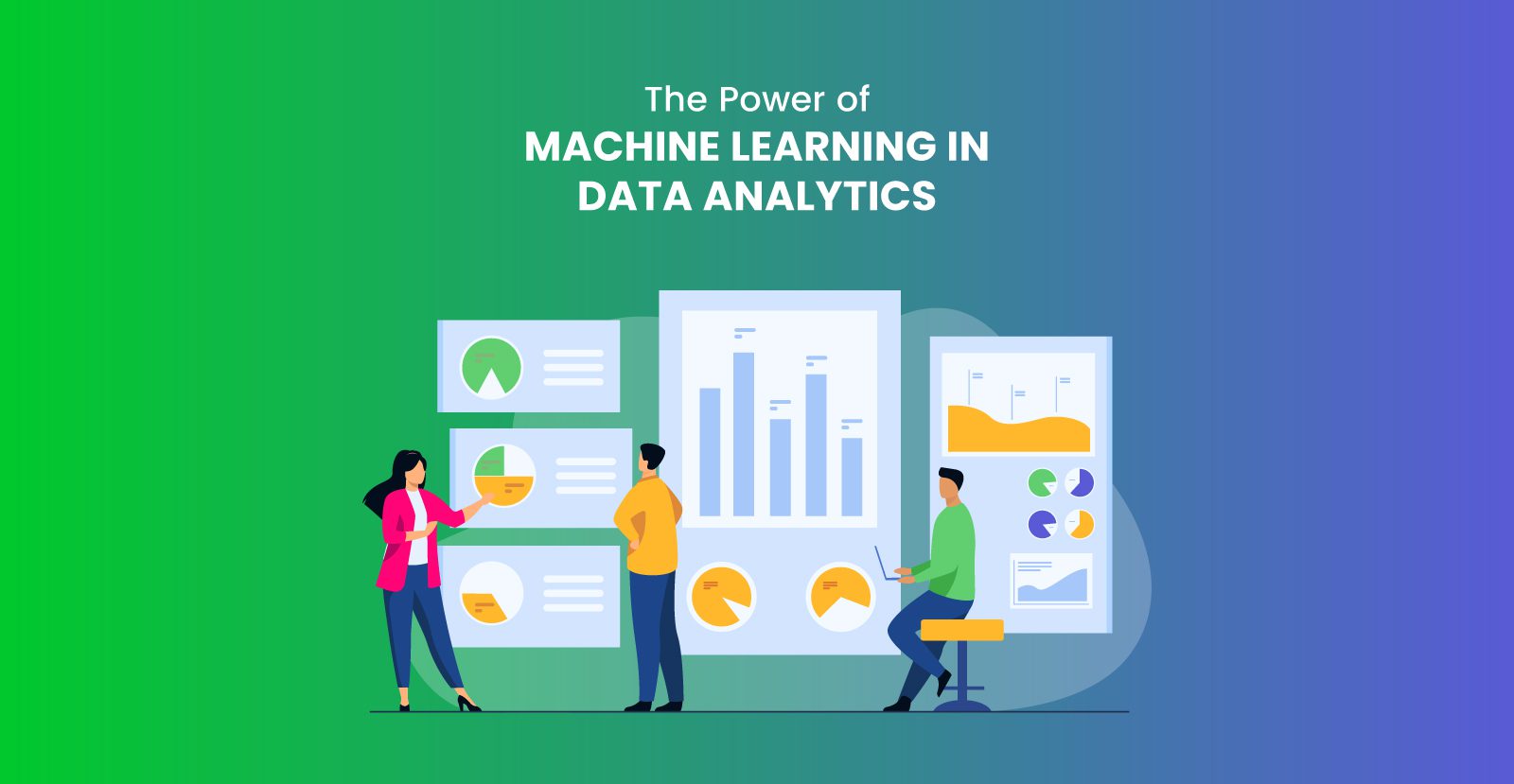Hey there! Are you ready to explore the fascinating world of machine learning in data analytics? Buckle up, because we’re about to dive into an exciting realm where data-driven insights and advanced algorithms meet. In this blog post, we’ll unravel the power of machine learning in data analytics, discover its applications, and explore the incredible benefits it brings to various industries. So, let’s get started!
What is Machine Learning?
Before we embark on our exciting exploration, let’s take a moment to delve deeper into the fascinating world of machine learning. By demystifying this concept, we can better appreciate its significance and the wonders it brings to the realm of artificial intelligence. At its core, machine learning is a captivating branch of AI that empowers computer systems with the remarkable ability to learn autonomously from data, constantly refining their performance without the need for explicit programming.
To envision machine learning in simpler terms, imagine teaching a computer how to recognize patterns, make predictions, and extract invaluable insights from vast and complex sets of information. It operates on the fundamental principle of leveraging data to enable computers to adapt, grow, and enhance their capabilities over time. By feeding the machine copious amounts of data, it becomes capable of recognizing underlying patterns and using them to make informed decisions or predictions.
The beauty of machine learning lies in its capacity to uncover hidden connections and trends that might elude human perception. It empowers computers to process and analyze immense volumes of data, sifting through it to extract valuable knowledge that can drive innovation, automate tasks, and optimize various processes. By continually learning from the data it encounters, a machine learning system can refine its understanding, refine its predictions, and ultimately refine its performance.
In essence, machine learning propels us into a realm where computers can evolve and improve their abilities, adapting to dynamic environments and complex challenges. As we embark on this exploration, we will witness firsthand the transformative power of machine learning and how it revolutionizes various domains, from healthcare and finance to transportation and entertainment. So, let us embark on this incredible journey of discovery and unravel the wonders of machine learning together.
Applications of Machine Learning in Data Analytics
1. Fraud Detection:
Machine learning algorithms have revolutionized fraud detection in industries like banking and e-commerce. By analyzing historical data and real-time transactions, these algorithms can quickly identify suspicious activities and patterns that might indicate fraudulent behavior. For example, if you’ve ever received a call from your bank notifying you of a potentially fraudulent transaction, that’s machine learning in data analytics and its work!
2. Healthcare:
Machine learning is transforming the healthcare industry by enabling more accurate diagnoses, personalized treatment plans, and efficient patient care. By analyzing medical records, symptoms, and test results, machine learning algorithms can assist doctors in making better-informed decisions. For instance, IBM’s Watson has been trained to analyze medical images and help radiologists detect anomalies, thereby improving diagnostic accuracy.
3. Customer Behavior Analysis:
Companies are leveraging machine learning to gain insights into customer behavior and preferences. By analyzing vast amounts of customer data, including purchase history, online behavior, and social media interactions, businesses can tailor their marketing strategies, optimize pricing, and offer personalized recommendations. Think of Amazon’s product recommendations or Netflix’s movie suggestions—they’re all powered by machine learning algorithms.
4. Transportation and Logistics:
Machine learning is revolutionizing transportation and logistics by optimizing routes, predicting maintenance needs, and improving overall efficiency. Companies like UPS and FedEx are utilizing machine learning algorithms to optimize their delivery routes, reducing fuel consumption and enhancing customer satisfaction. In addition, machine learning models can forecast maintenance requirements, reducing downtime and maximizing the lifespan of vehicles.
Looking to learn Machine learning? Check out our Master’s Program in Data Analytics and Data Science
Benefits of Machine Learning in Data Analytics
1. Enhanced Decision-Making:
Machine learning in data analytics enables data-driven decision-making by extracting valuable insights from vast amounts of information. By analyzing patterns, trends, and correlations, machine learning algorithms can uncover hidden relationships that humans may overlook. These insights empower organizations to make informed decisions that drive growth, optimize operations, and enhance customer satisfaction.
2. Time and Cost Efficiency:
With machine learning, data analysis tasks that once required weeks or months can now be performed in a matter of hours or minutes. By automating processes and reducing manual intervention, machine learning algorithms save valuable time and resources. This increased efficiency allows businesses to focus on strategic initiatives, accelerate innovation, and stay ahead in today’s competitive landscape.
3. Improved Accuracy and Predictability:
Machine learning algorithms continuously learn and adapt based on new data. This enables them to make accurate predictions and forecasts with a high degree of precision. For example, financial institutions use machine learning to predict stock prices, detect anomalies in trading patterns, and mitigate risks. By harnessing the power of machine learning, businesses can gain a competitive edge and stay ahead in dynamic markets.
4. Scalability and Flexibility:
Machine learning models are highly scalable and can handle massive amounts of data effortlessly. As the volume of data continues to grow exponentially, traditional analytical approaches often fall short. Machine learning algorithms, on the other hand, can handle the ever-increasing demands of big data, allowing organizations to extract meaningful insights and gain a comprehensive understanding of their operations.
Conclusion
Machine learning has emerged as a game-changer in the field of data analytics, unlocking new possibilities and transforming industries across the board. From fraud detection to healthcare, customer behavior analysis to transportation and logistics, the applications are vast and impactful. By harnessing the power of machine learning, organizations can make data-driven decisions, enhance efficiency, and gain a competitive edge.
As we move forward in the age of information, the significance of machine learning in data analytics will only continue to grow. So, embrace this transformative technology, explore its endless possibilities, and let it guide you on the path to success.
Keep learning, keep exploring, and witness the remarkable power of machine learning unfold before your eyes!




Please enter input field